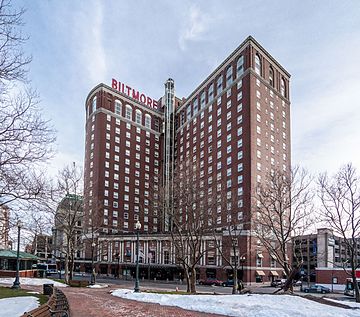
When the ER is your primary-care doctor
From Robert Whitcomb's "Digital Diary,'' in GoLocal24.com
Memorial Hospital, in the old mill town of Pawtucket, R.I., may have been too uneconomic to remain open as a full community hospital but state officials and others could have done a better job anticipating that closing Memorial, with its disproportionately sick and low-income clientele, would overwhelm the emergency rooms of the Miriam Hospital and Rhode Island Hospital. One reason is that America has about the most fragmented (and expensive) health-care “system’’ in the Developed World, which leads all too many patients – especially low-income ones -- to use hospital emergency rooms as their main source of health care. That’s a notably inefficient and expensive way of getting care!
Presumably the proliferation of free-standing emergency departments and drugstore-chain clinics will eventually reduce the severe crowding in hospital emergency rooms in coming years. So would public-education campaigns to discourage people from using hospital ERs for such routine ailments as pink eye and bad colds
Health system needs surge protectors
U.S. Army field hospital.
Adapted from Robert Whitcomb's "Digital Diary,'' in GoLocal24.com:
Rhode Island and many other states have more hospital beds than they need most of the time. So here and elsewhere, some hospitals are being closed or being turned into entirely outpatient operations. Consider the recent closing of the inpatient part of Memorial Hospital, in Pawtucket, with considerable local anger.
But what happens when a big epidemic, such as the current flu outbreak, or a sudden disaster, such as the Station nightclub fire, strikes? That Rhode Island, and the rest of New England, has an older demographic than most of America and thus a higher percentage of people who could get very sick, makes us particularly exposed.
Where do you put all these very sick and/or injured people in times of widespread medical emergencies? Instant hospitals under tents, such as on battlefields?
Our health "system'' needs surge protectors.
Suggestions appreciated.
Hotels as economic indicators?
Providence's grand Biltmore Hotel, built in 1922.
From Robert Whitcomb's "Digital Diary,'' in GoLocal24.com:
For some reason, news of the recent proliferation of hotel projects in Providence recalled to me the late film mogul Sir Alexander Korda’s remark that you should “always go to the best hotel…{because} sooner or later someone will appear who will give you money.’’
At last count, there were a total of eight hotels being built or planned in Providence. I have to think that this suggests that there’s more business confidence in the future of the city and Rhode Island than most citizens think. Hotels, after all, cater to businesspeople and tourists.
Presumably the hotel developers believe that there will be more economic activity in the city in the next few years. It’s hard to figure out how much of this is due to the Raimondo administration’s relentless courting of companies to get them to move to Providence, how much to firms’ interpretation of general national and regional business cycles and how much to Providence’s proximity to booming Greater Boston.
The new hotels will boost the city in some rather indirect ways. Hotels, especially their lobbies, function rooms and restaurants, are natural meeting places for businesses. Thus they make cities more dynamic for deal-making. Airbnbs and bed and breakfasts don’t quite do that.
Some old hospitals can be turned into very nice hotels, as a recent Washington Post article reported. Many more hospitals are likely to close as outpatient institutions and home care provide services, even acute-care services, that used to be only available in hospitals, and as new pharmaceuticals and medical devices make it easier to avoid hospitalization. To read The Washington Post article, please hit this link:
As I’ve written before, Pawtucket’s Memorial Hospital’s attractive and very solid buildings could be turned into a large assisted living center, condos, apartments or even, yes, a hotel.

